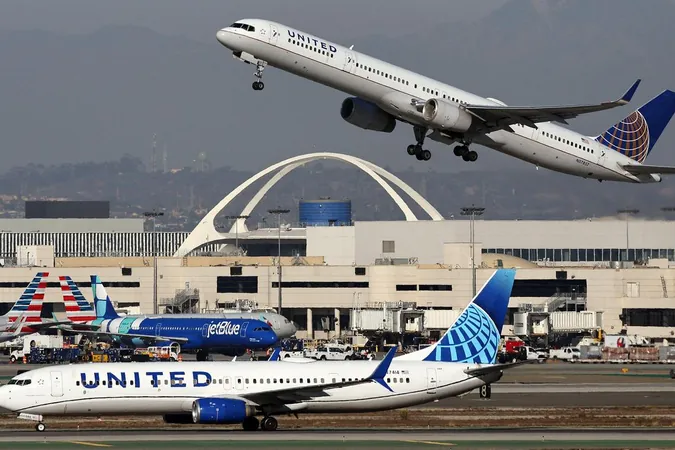
Naughty Dog Co-founder Reveals How Soaring Budgets Led to Sony Acquisition!
2024-12-26
Author: Yu
Introduction
In a revealing recent LinkedIn post, Andy Gavin, co-founder of the iconic game studio Naughty Dog, shared fascinating insights into the company’s financial evolution and the pressures that ultimately drove it to be acquired by Sony in 2000. Since its inception in 1986 alongside Jason Rubin, Naughty Dog has experienced a dramatic transformation from modest beginnings to becoming a major player in the AAA gaming industry.
Naughty Dog’s Financial Journey
Gavin reminisced about the studio’s early experiences, stating, “Our games in the early ’80s cost less than $50,000 to develop.” He explained how the expenditure for titles gradually increased, citing examples such as Rings of Power, which had a budget of about $100,000 and garnered profits shortly after its release in 1992. However, there was a steep climb in costs, as demonstrated by Crash Bandicoot, which jumped to an eye-popping $1.6 million by the mid-’90s, and Jak and Daxter, which surpassed $15 million by the end of the decade. By 2004, the expenditure for games like Jak 3 escalated to between $45 to $50 million.
The Stress of Ballooning Budgets
Gavin noted that the stress of financing these "ballooning budgets" independently began to take a toll on the studio. He stated, "Selling to Sony wasn’t just about securing a financial future for Naughty Dog; it was about ensuring the studio had the resources to keep creating top-tier games without being crushed by mounting costs and the fear that a single misstep could lead to disaster."
Industry Reactions
This statement sparked engaging discussions among industry peers, with comments reflecting a collective concern regarding rising development costs. James Marcus, a senior artist involved in the development of Splitgate 2, lamented the shift in the industry: "It is sad that costs have risen so much. Developers are now more reluctant to take creative risks or often find themselves selling to larger corporations to mitigate the financial risks associated with an unsuccessful title."
The Risks of Acquisition
While the acquisition by major companies like Sony can provide lucrative resources, it also carries inherent risks, such as restructuring and potential layoffs. For instance, Naughty Dog faced challenges of its own during Sony's 2024 round of cuts. Moreover, the recent fate of Firewalk Studios, which was acquired by Sony in 2023, raises questions about the effectiveness of such acquisitions; the studio was closed shortly after launching its title, Concord, casting a shadow over the potential benefits of being under the Sony umbrella.
Conclusion
The escalating costs of AAA video game production are an undeniable truth that the industry grapples with today, leading to a complex landscape for both developers and publishers alike. As gaming continues to evolve, the delicate balance between financial viability and creative freedom remains a topic of fervent debate. Will this trend continue to stifle creativity in the gaming world? Only time will tell!






 Brasil (PT)
Brasil (PT)
 Canada (EN)
Canada (EN)
 Chile (ES)
Chile (ES)
 España (ES)
España (ES)
 France (FR)
France (FR)
 Hong Kong (EN)
Hong Kong (EN)
 Italia (IT)
Italia (IT)
 日本 (JA)
日本 (JA)
 Magyarország (HU)
Magyarország (HU)
 Norge (NO)
Norge (NO)
 Polska (PL)
Polska (PL)
 Schweiz (DE)
Schweiz (DE)
 Singapore (EN)
Singapore (EN)
 Sverige (SV)
Sverige (SV)
 Suomi (FI)
Suomi (FI)
 Türkiye (TR)
Türkiye (TR)